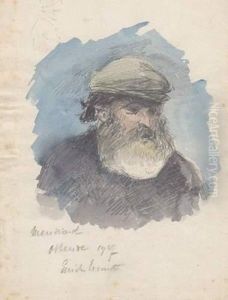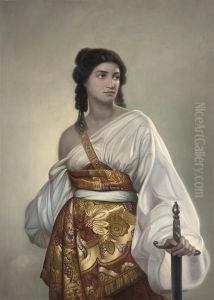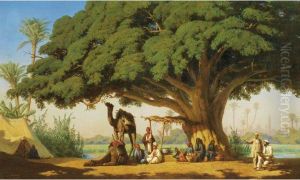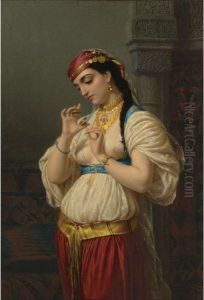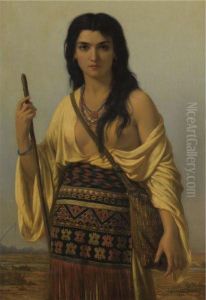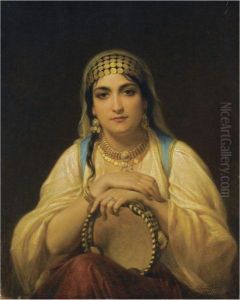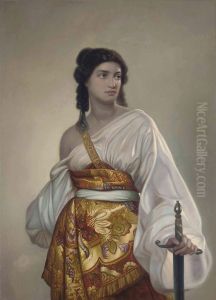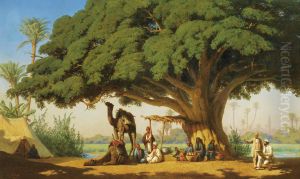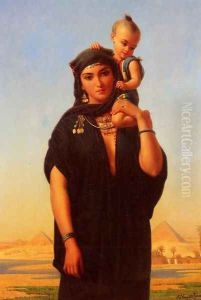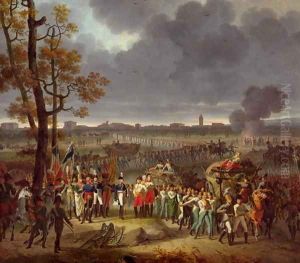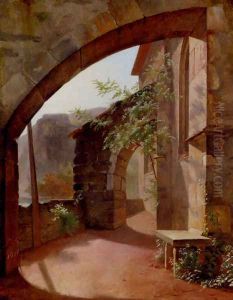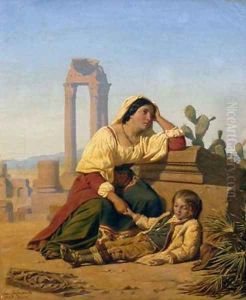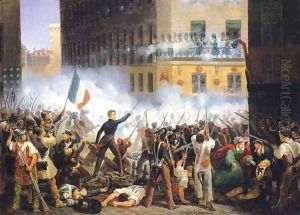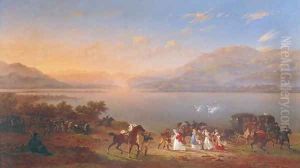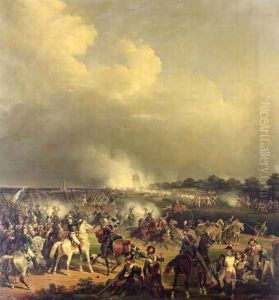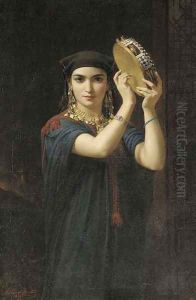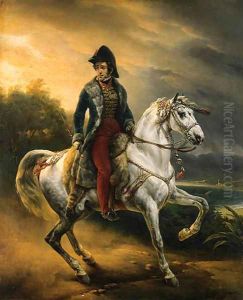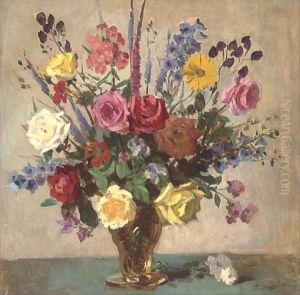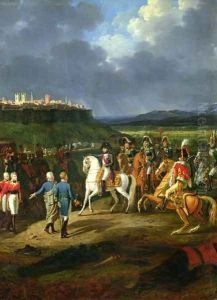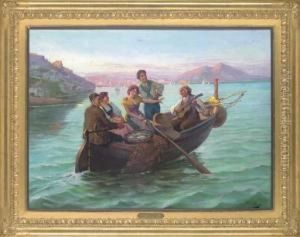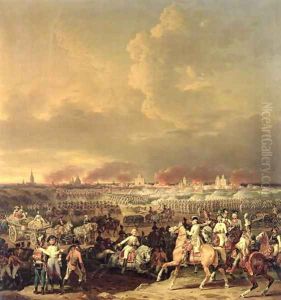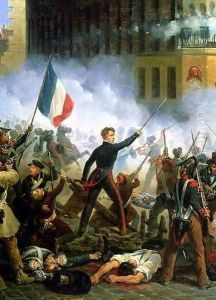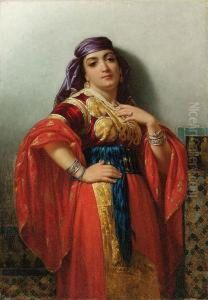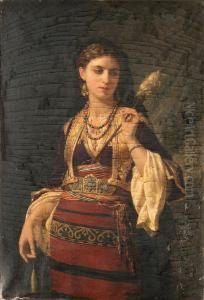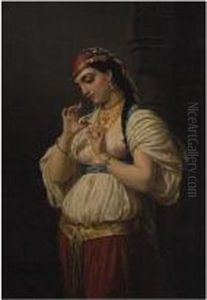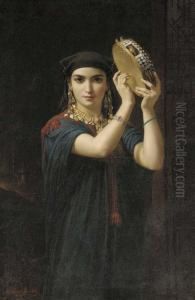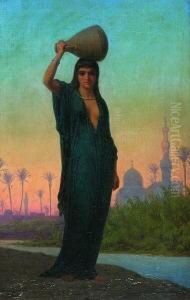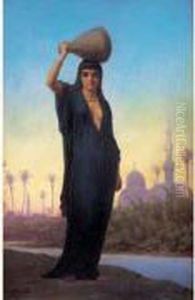Charles Emile Hippolyte Lecomte-Vernet Paintings
Charles Emile Hippolyte Lecomte-Vernet was a French painter born on October 29, 1821, in Paris, France. He hailed from a family with strong artistic roots; his father, Carle Vernet, was a famous painter, while his grandfather, Joseph Vernet, was a renowned landscape and maritime artist. Lecomte-Vernet is often associated with the academic art movement, which emphasized traditional forms and techniques, and often focused on historical or mythological themes.
Lecomte-Vernet developed his skills under the tutelage of his father and later at the École des Beaux-Arts in Paris, where he trained under Horace Vernet, his uncle, who also had a significant influence on his style and career. His work is characterized by a clear and precise technique, often depicting scenes of military and historical significance with a romanticized flair.
He exhibited at the Paris Salon, an official art exhibition of the Académie des Beaux-Arts in Paris, and gained recognition for his works. Notably, his painting 'Les Cosaques' (The Cossacks) received considerable acclaim. Throughout his career, Lecomte-Vernet remained committed to the academic standards of art, which by the late 19th century, began to be challenged by new movements such as Impressionism.
Despite the shift in artistic trends, Lecomte-Vernet continued to receive commissions and honors, including the Legion of Honor in 1849. His works were part of public and private collections, reflecting the tastes of a society that was increasingly looking back at its past with a sense of nostalgia.
Charles Emile Hippolyte Lecomte-Vernet passed away on August 27, 1900, in Paris. His legacy is preserved in the historical and military scenes he captured, which continue to be appreciated for their technical mastery and contribution to the romantic and academic traditions of French art.
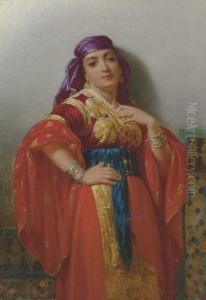
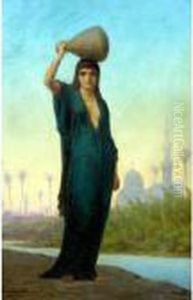
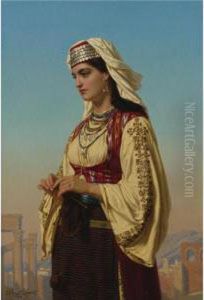
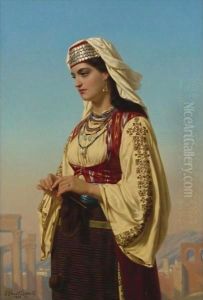
![Sans Titre [joueurs De Cartes]](https://www.niceartgallery.com/imgs/1436443/s/charles-emile-hippolyte-lecomtevernet-sans-titre-joueurs-de-cartes-2d6946fd.jpg)
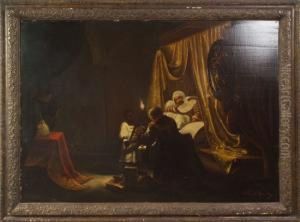
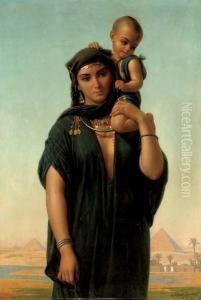
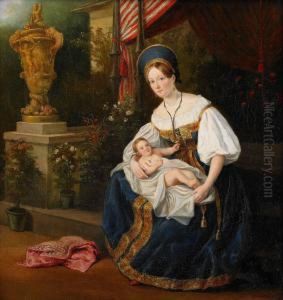
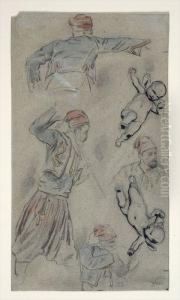
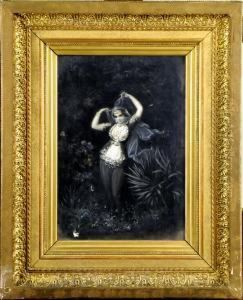
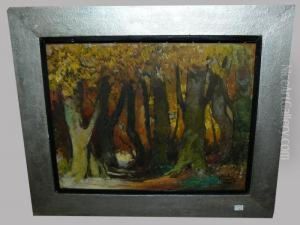
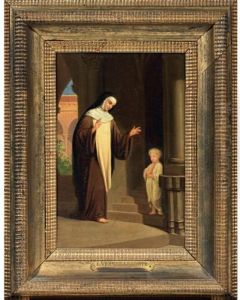
![Sans Titre [bateau]](https://www.niceartgallery.com/imgs/756536/s/charles-emile-hippolyte-lecomtevernet-sans-titre-bateau-df15080b.jpg)
